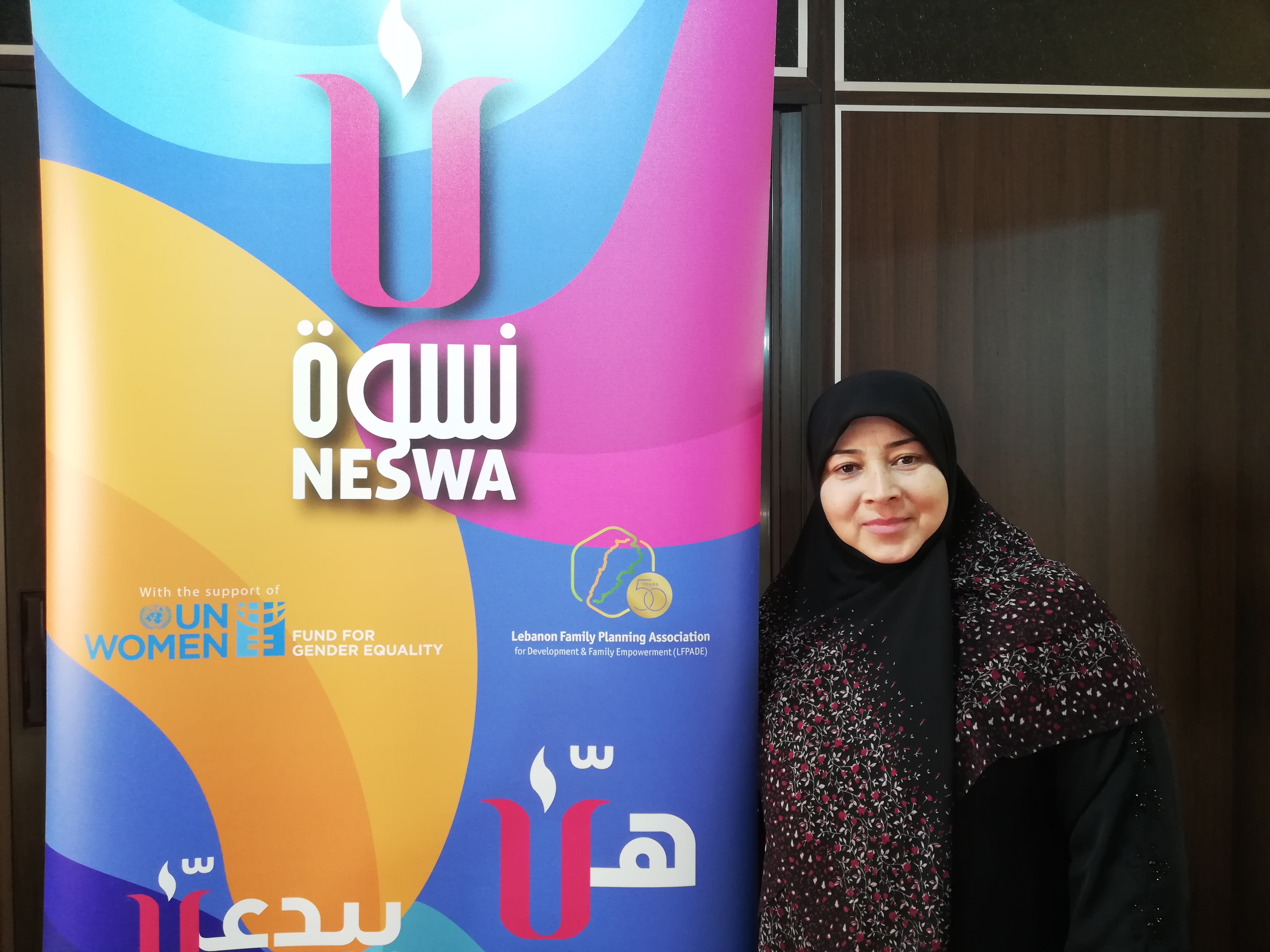In the words of Nadia Jaber: “I can accomplish change in my town and within my family”
Date:

48-year-old Nadia Jaber is a mother of four young women, the eldest of whom is 29 and the youngest 20 years old. Joining the NESWA enterprise through a project supported by Lebanon Family Planning Association for Development & Family Empowerment (LFPADE), a local NGO and UN Women’s Fund for Gender Equality grantee, in her southern village of Yanouh, enabled her to transit from being a small-scale producer to an entrepreneur.
“Looking back at what I have achieved, for me and for my family, and reflecting on the financial obstacles that I overcame, I consider myself today to be a strong woman. Since my marriage, I had to work, as my husband wasn’t permanently employed. I learned how to sew which became my family’s main source of income, besides selling home-prepared preserves, to relatives and neighbors. My husband approved of this activity, as we had no other choice.
In 2016, when LFPADE kick-started its project to provide agri-food trainings, with the support of UN Women, I enrolled in the project’s theoretical and practical trainings tackling among others, reciprocal contamination, Hazard Analysis and Critical Control Point (HACCP), and good manufacturing practices. At the time, several cooperatives were being established in neighboring towns; soon the idea emerged of launching a competitive cooperative per ISO standards in Yanouh for women who produced preserves. We were enthusiastic about the idea and we wanted to make it a reality. Today, the cooperative includes 11 women who are either relatives or neighbors, and we enjoy a great harmony.
Yanouh is a small and marginalized southern town, and we were excited to see its municipality cooperate with LFPADE on the project to achieve broader impact, since the cooperative is helping women transit from small-scale production to entrepreneurship.
An agri-food line, NESWA, emerged as a full-scale business model, establishing four cooperatives run by women. It proved to be very popular, especially with the attractive packages the products presented, as well as the high-quality products made with the support of a number of national and international experts. At exhibitions, the brand received customers’ positive feedback. Indeed, to maintain NESWA’s good reputation, we need to upscale our work, including through implementing periodic monitoring and upgrading of the products shelf-line. We are also applying the marketing strategy developed within the project, in order to deliver our products to the largest number of customers. We are now expanding our reach to supermarkets and shops, at the local level and in Beirut.
NESWA has given us a strong boost. It is more than an agri-food line; it is a social project linking us with cooperatives from nearby villages. As one, we are stronger and can better compete with others. Before this experience, I never thought that our products could be branded and follow standardized recipes and applicable international food safety standards. We are no longer producing for family or relatives, but for customers.
My previous sewing work empowered me within my household and enabled me to make decisions. Also, my work at the cooperative helped me improve my income as to respond to my family’s needs. It also allowed me to gain further self-confidence. Now, I can accomplish change in my town and within my family. Being part of a well-organized structure, I learned new recipes through training with Italian experts provided as part of the social innovation experiment supported by the Fund for Gender Equality, therefore, I feel particularly skilled.
Rural women should not be reluctant to learn and must seize available opportunities and trainings. Women have the right to have ambition. We will work hard to ensure the sustainability of our women’s cooperative and its significant results and we look forward to including new products and increasing our market competitiveness. We want to turn NESWA into a successful model to be replicated, and we will!